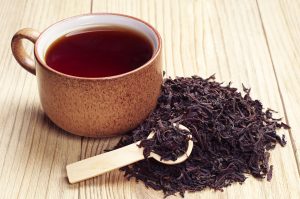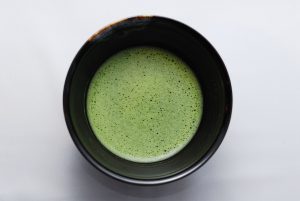7 Natural Caffeine Sources That Aren’t Coffee
 When it comes to caffeine, many of us have a dependent relationship with our daily cup of Joe. Though we may not want to admit it, it can be tough to get through the day without some coffee or espresso. But what might be surprising is that there are a wide variety of other natural sources of caffeine.
When it comes to caffeine, many of us have a dependent relationship with our daily cup of Joe. Though we may not want to admit it, it can be tough to get through the day without some coffee or espresso. But what might be surprising is that there are a wide variety of other natural sources of caffeine.
While coffee is by far the most ubiquitous source of caffeine in our society, it’s good to diversify the source of your daily pick-me-up. Many commercial coffees have lots of sugar added to them, but there are plenty of organic, healthier sources of caffeine.
The following seven natural ways to get your fix will bring you new ways to get your buzz on — without any excess calories!
Yerba Mate
Yerba mate (a South American beverage) is becoming more popular in many different health circles. The reason? It packs the health benefits of tea, along with the brain boost of your favorite chocolate. Packing a slightly smaller dose of caffeine (though this can vary), yerba mate also has over 20 vitamins and minerals, over 10 amino acids, and a large dose of antioxidants. Another benefit to yerba mate that is undoubtedly lacking in coffee is its ability to help aid in digestion. South American natives have used yerba mate for this very purpose for centuries. If you’re looking to try some yerba mate, the beverage company Guayaki makes a great organic version that’s packed with a nice punch of caffeine.
 Black Tea
Black Tea
If you want the flavor of tea with the highest dose of caffeine — look no further. Black tea can contain up to 80 mg of caffeine (almost equal to a cup of coffee). What most people don’t know is that drinking black tea on a regular basis may help lower one’s risk of diabetes. One study found that those consuming this tea regularly had a 70% lower chance of developing diabetes. If you’re looking to try some black tea, make sure it is organically sourced, and preferably fair-trade certified.
Dark Chocolate
Dark chocolate is a delightful addition to a healthy diet, and unbeknownst to most, contains a small punch of caffeine (around 10 mg). However, chocolate also contains theobromine and theophylline, which are mild stimulants. The darker the chocolate, the healthier it likely is. When it comes to buying dark chocolate, look for a bar that is around 70% cocoa (or more), fair trade, organically grown, and GMO free.
Guarana Berry
Most commonly sold as a supplement, guarana berry (or extract) can also be made into a tea. What most people do not realize is that guarana contains 200% more caffeine than coffee beans, making it a nice source of energy for those who may have missed a good night’s sleep. With links to improved energy, alertness and mood, guarana is added to many beverages around the world. Many athletes swear by the increased focus and energy levels that guarana can provide. That being said, this is not a great item to consume after lunchtime, as the caffeine buzz may be too much and may hinder your upcoming night’s sleep.
Matcha Tea
The health world has fallen in love with matcha tea, and for good reason. Boasting a large amount of antioxidants (some claim even more than green tea) matcha also has a nice boost of caffeine, weighing in at around 30 mg (about ⅓ the dose of a cup of coffee). Matcha tea may also help with your memory and focus, as well as burning calories and helping your body to detoxify. Matcha tea can also be consumed at night (due to its lower caffeine content), making it very versatile for drinking at any time of the day.
Kombucha
Coming from a SCOBY (symbiotic culture of bacteria and yeast), kombucha is a fermented tea that can vary in sweetness and tartness. You can purchase this cloudy drink at most health stores, but you may want to try making your own kombucha, to vary the flavor possibilities. Typically kombucha contains just enough caffeine to get you to notice — far less than a standard cup of coffee.
Loose-Leaf Green Tea
Still perhaps the best alternative to coffee, green tea packs about 1/3 the amount of caffeine, compared to a cup of coffee. But green tea has many hidden benefits, like the polyphenol EGCG. In addition, green tea has an amino acid called L-theanine. This amino acid helps to increase the activity of the inhibitory neurotransmitter GABA. Why is this important? Because GABA has strong anti-anxiety effects, meaning that you get the buzz of coffee, but with the calm focus of a Zen monk. L-theanine also helps to increase dopamine and alpha waves in the brain. Not too shabby. Make sure you grab a fair-trade, organic green tea, if you’re looking to get away from your daily cup of coffee.
Caffeine, we love you
There are few things better than a nice weekend morning, introduced by the warm buzz of caffeine. Whether you’re drinking yerba mate, green tea, munching on some dark chocolate, or brewing your own kombucha — we all need a little pick-me-up. So mix it up when it comes to caffeine choices — and enjoy!
About the Author: This article was contributed by PaleoHacks, a top source for amazing Paleo recipes, fitness tips, and wellness advice to help you live life to the fullest.